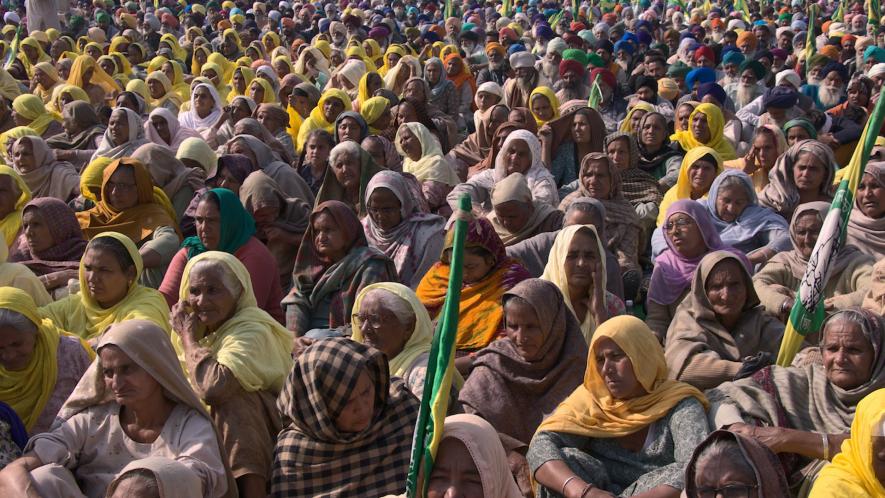International Women’s Day: Struggles and Solidarity

The world over, 8 March is celebrated as International Women’s Day, highlighting the struggle, demonstrating solidarity and recognising the accomplishments and achievements, and advocating for women’s rights and equality. It is an event for celebrating women’s social, economic, cultural, and political attainments and advancements. The day also commemorates a call to action for expediting gender parity.
It is an opportunity to talk about the acquisition of gender equality and reflect on why we still need to designate a special day to highlight a fundamental gender inequality issue that affects the lives, health, opportunities, and influence of almost 50% of the global population. The celebration of International Women’s Day also renders a chance to examine the changes and progress made to make an egalitarian society protect women and girls’ fundamental human rights significantly.
Tracing back to history, the seeds of Women’s Day were sown in 1908 when almost 15,000 women demonstrated through New York City bespeaking shorter working hours, better pay, and the right to vote. The Socialist Party in America declared the first National Woman’s Day in 1909. In August 1910, the idea to make the day international was tabled at an International Socialist Women’s Conference, which was convened to precede the Socialist Second International’s general meeting in Copenhagen, Denmark. Clara Zetkin, Kate Duncker, and others proposed the commencing of an annual Women’s Day.
In 1911, it was primarily celebrated in Austria, Denmark, Germany, and Switzerland. Things were made official in 1975 when the United Nations started celebrating the day. The United Nation’s first theme (in 1996) was ‘Celebrating the Past, Planning for the Future’. The United Nations officially recognised Women’s Day in 1977—the day was meant to create awareness about women’s issues.
The centenary was celebrated in 2011. The day is also referred to as Civil awareness day, Anti-sexism day, and Anti-discrimination day by many thinkers and activists. The theme for this year’s International Women’s Day is “Women in leadership: Achieving an equal future in a COVID-19 world” marking the enormous efforts of women and girls globally in shaping an equal future and recovery from the unprecedented COVID-19 pandemic.
To achieve the real essence of this day, a question that needs to be posed is: Are women equal? Regrettably, the reality reveals that gender equality has remained elusive in this society so far. Many women continue to experience untold and unnoticed violence in public and private spheres.
The United Nations revealed that a third of all women and girls experience physical or sexual violence in their lifetime. It also unveiled that one in three women are beaten, raped, and in extreme circumstances murdered. It also highlighted that the atrocities of women and girls are among the most common and catastrophic human rights violations globally, but much of it is generally not unreported due to impunity, shame, and gender inequality. Unfortunately, despite various redressal initiatives, violence experienced by women remains a menace and pandemic around the world.
Although, some noticeable progress has been made on removing discriminatory laws, eliminating gender gaps, widening women’s access to economic resources, and stepping up efforts to prevent gender-based violence, much remains to be done. Today, in many corners of the world, women remain vulnerable without the rights, freedoms, and privileges.
In a few countries, women do not even have fundamental sexual and reproductive rights. Besides, many women are still fighting for the right to make fair choices. As many as 90 million women of reproductive age live in countries that prohibit abortion—that is, a woman is not allowed to make decisions about her own body.
They are also denied to have equal access to healthcare and contraception, and consequently, motherhood is forced on them. The statistics also reveal that at least 23,000 women die every year because of unsafe abortions.
The United Nations Development Forum gender index’s findings reveal that almost 90% of the population in 75 countries is biased against women. Many women across the world are killed or forced into taking their own lives. Very recently, In India, 23-year-old Ayesha Bano committed suicide by jumping into a river owing to the humiliation and harassment from her husband. The data also shows that as many as six women are killed every hour by men worldwide.
Almost 137 women are killed every day by a partner or family member. The gender pay gap is still widespread; women are still not fully valued as leaders in the workplace, let alone in the family. We have not even ventured into child and forced marriages, education, healthcare, sanitation, menstruation, genital mutilation, body shaming, etc.
It is evident how gender equality on the planet will be difficult to achieve unless women’s identities are respected and their contributions are equally acknowledged and valued. A feminist standpoint is required to answer the gender equality question and needs to be incorporated into the world’s legal architectures.
We need to fully appreciate the power of women’s leadership to realise an equal, inclusive and sustainable future. We need to create an environment free from stigma, stereotypes, and violence to make this society sustainable, peaceful, and with equal rights and opportunities for all.
The authors are faculty members at the Advanced Centre for Women’s Studies, Aligarh Muslim University. The views are personal.
Get the latest reports & analysis with people's perspective on Protests, movements & deep analytical videos, discussions of the current affairs in your Telegram app. Subscribe to NewsClick's Telegram channel & get Real-Time updates on stories, as they get published on our website.
























